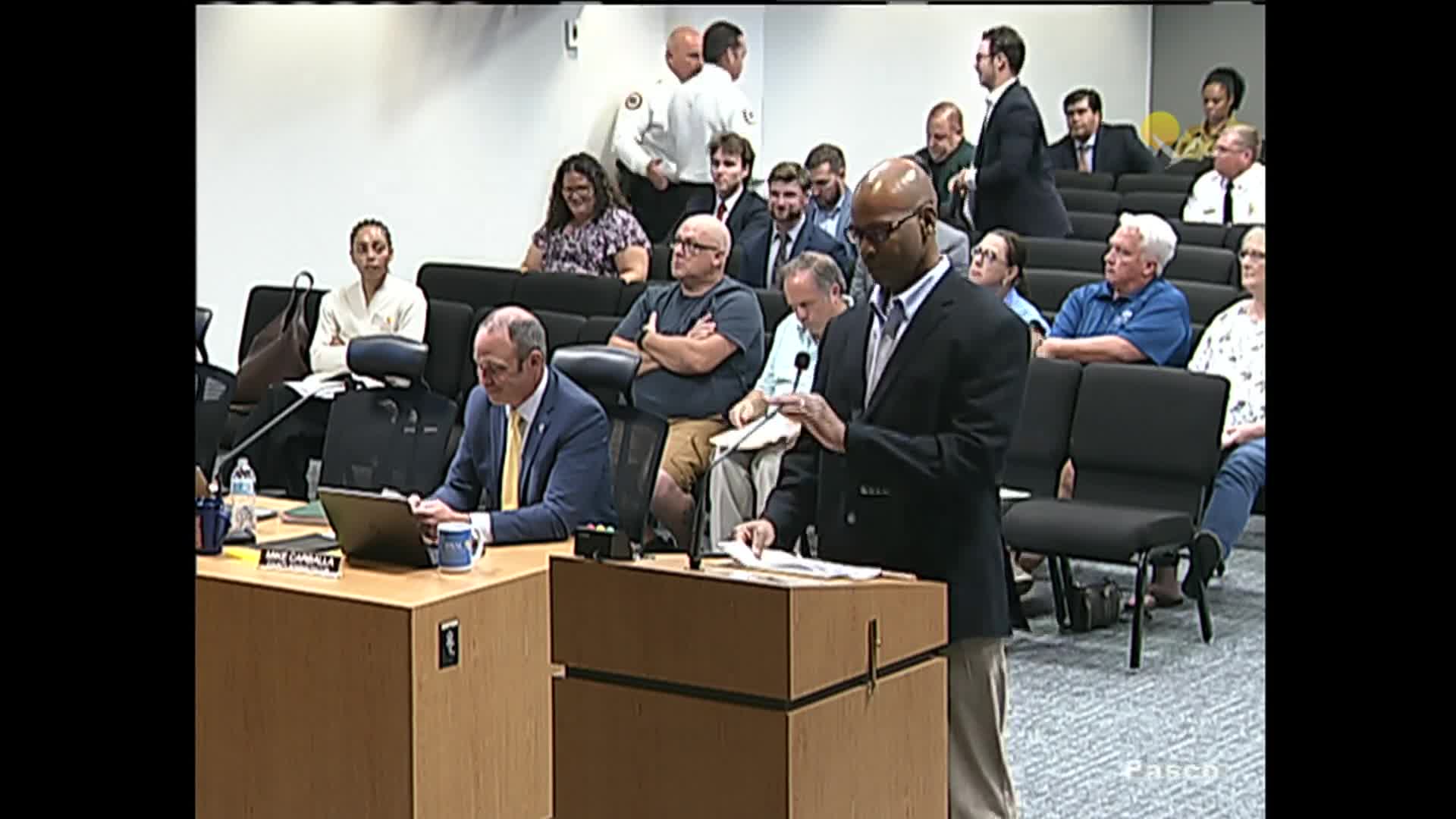Article not found
This article is no longer available. But don't worry—we've gathered other articles that discuss the same topic.
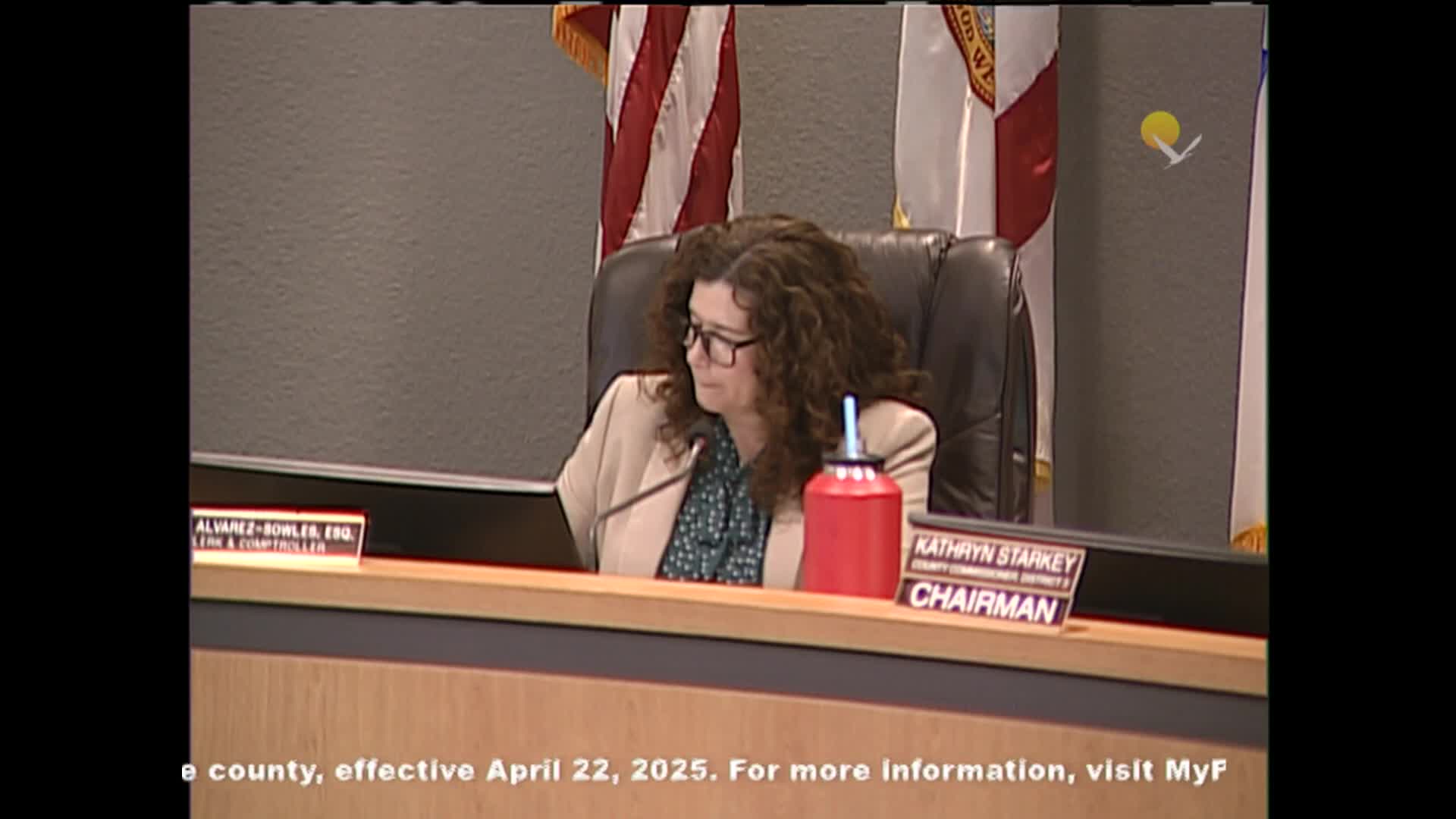
Pasco County Increases Fire‑Rescue Impact Fees; Board Rejects Commercial Cap
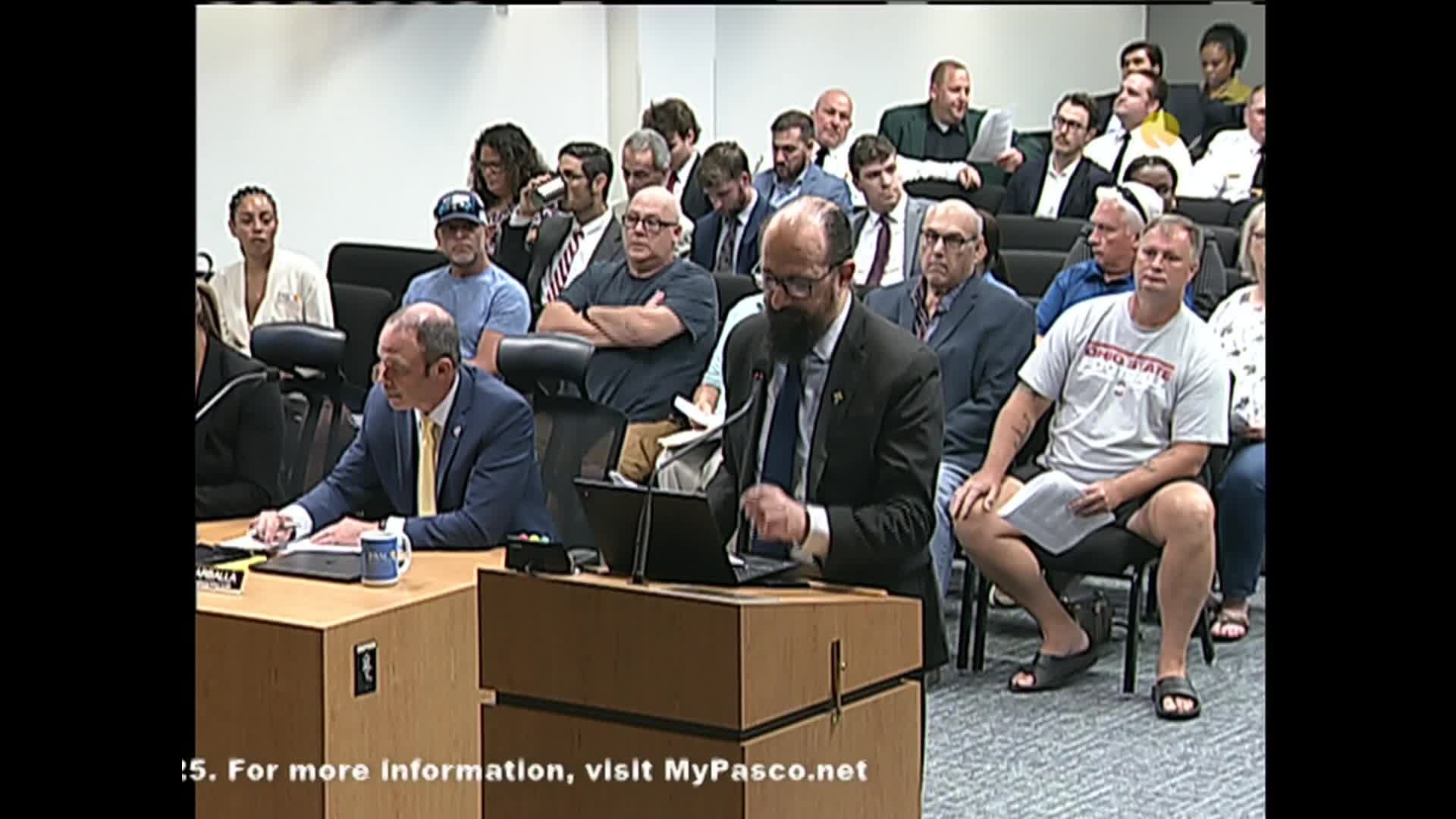
Neighbors Press Pasco County Commissioners on Little Road PD Amendment, Board Continues Hearing to June 17
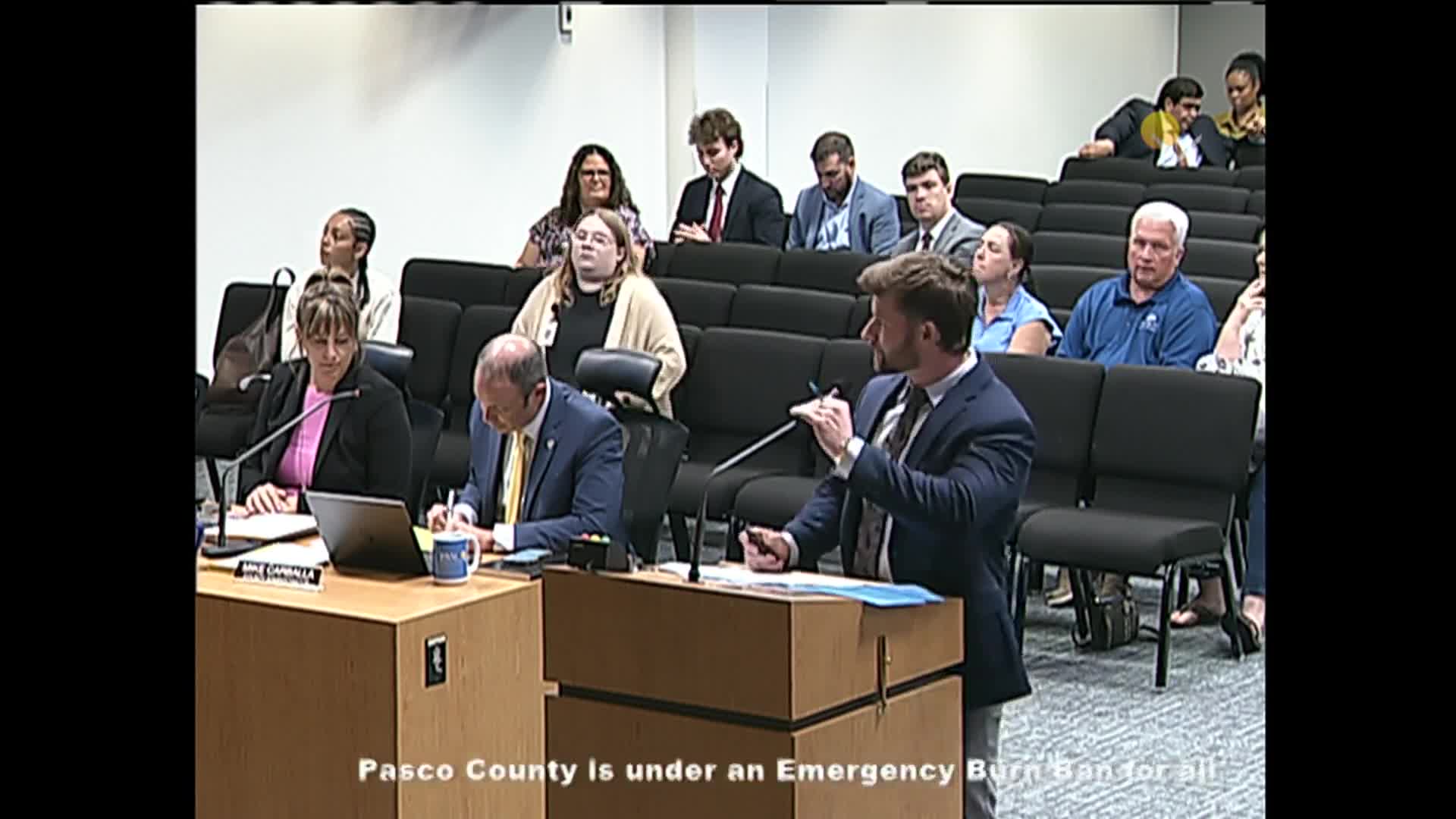
Commission Approves Mitchell MPUD for Business Park; Developer to Fund Multi‑Use Trail Connection Study
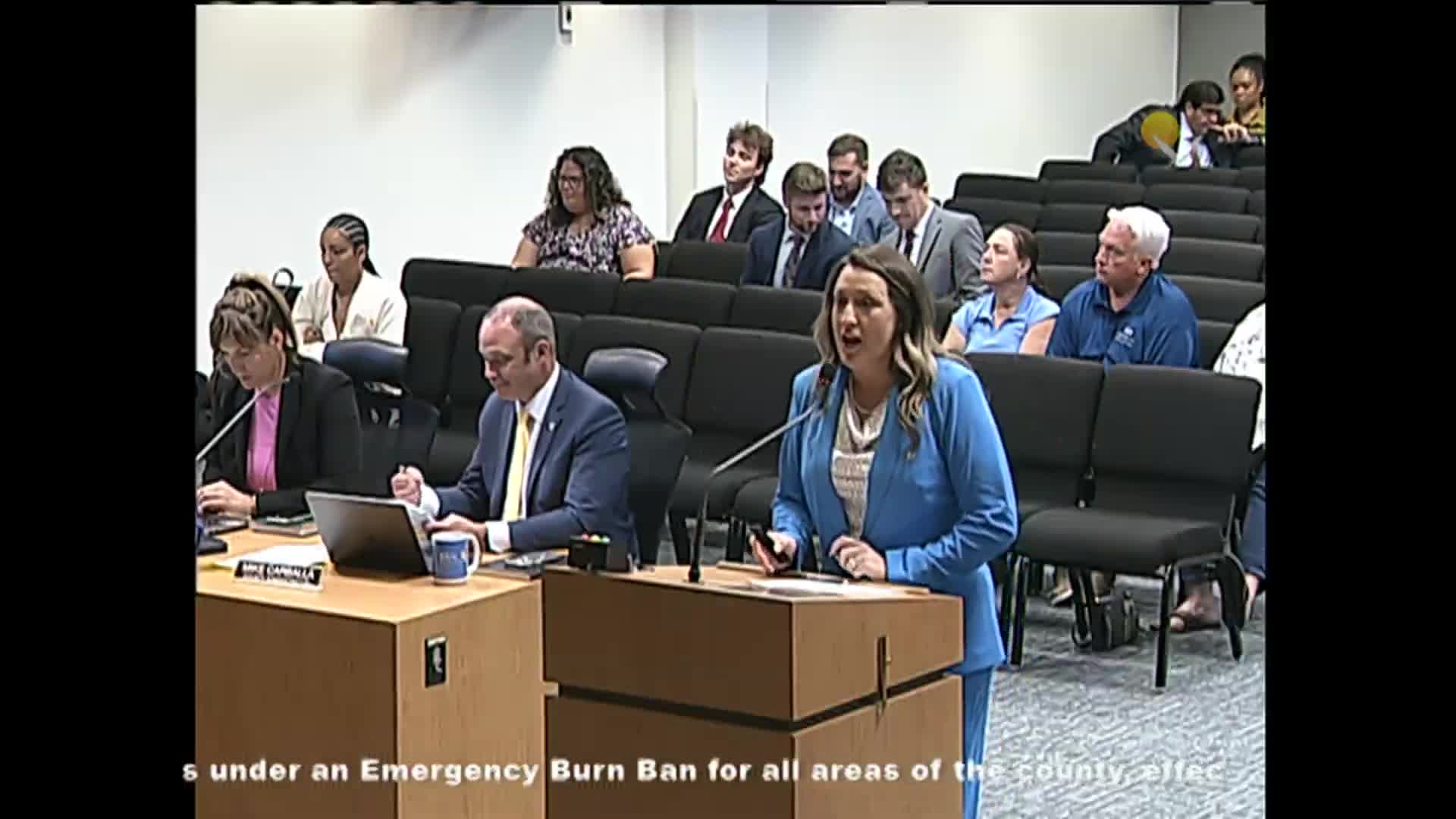
Commission Approves Old Dixie Highway Marina with Conditions after Neighbors Voice Hurricane, Noise and Traffic Concerns
